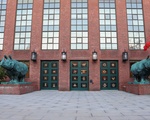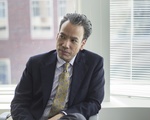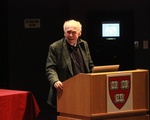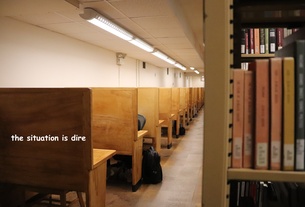MCB
Harvard Biology Professors Win International Awards for Neuroscience Research
Two Molecular and Cellular Biology professors, Takao K. Hensch ’88 and Catherine Dulac, received prestigious international awards this fall for their neuroscience research.
Harvard Northwest Labs Director Alain Viel Appointed UNESCO Chair on Life Sciences and Innovation
Alain Viel, director of the Northwest Undergraduate Laboratories and a Harvard senior lecturer in Molecular and Cellular Biology, has assumed the role of chair on life sciences and social innovation for the United Nations Educational, Scientific and Cultural Organization.
Biology Prof. Lue, Visionary in Life Sciences Pedagogy, Dies at 56
Faculty and administrators from across the University said Lue left an indelible mark wherever he went. He fought relentlessly to ensure that all students could access a high-quality education, whether they were at Harvard or not. He saw no limits to where a Harvard education should — and could — be accessed.
Harvard Study Reveals Octopi Can 'Taste' by Touch
Harvard researchers found that octopi use a family of specialized cells called chemotactile receptors to “taste” using their sense of touch when employing their arms.
Ruth Hubbard, Harvard Biology Professor and Political Activist, Dies at 92
Ruth Hubbard ’45, the first woman to receive tenure as a biology professor at Harvard, passed away last Thursday at age 92 after a recent decline in her health.
Watson: Life and The Helix
James Watson, who along with Francis Crick is credited with discovering the double helix structure of DNA, shared life advice to a crowd of mostly LS1B and OEB students.
Two Harvard Seniors Selected for Marshall Scholarship
Bianca Mulaney ’16 and Rebecca M. Panovka ’16, friends and fellow Quincy House residents, have been named Harvard’s two newest Marshall scholars to their shared surprise and disbelief.
MCB To Revamp Requirements, Programming, and Concentration Name
The Molecular and Cellular Biology concentration will revamp its requirements and extracurricular programming to allow concentrators greater flexibility and incorporate recent “astonishing changes in biomedical research,” MCB head tutors Susan Mango and Rachelle Gaudet announced in an email to concentrators on Monday.
MCB80.1x Brings Innovation to the edX Platform
David D. Cox ’00, an assistant professor of MCB and computer science, is leading MCB80.1x, a new online counterpart to the Harvard classroom course MCB 80: “Neurobiology of Behavior,” as part of Harvard’s continually growing involvement in edX.
Concentration Satisfaction: Class of 2012
As freshmen enter the second week of Advising Fortnight, Flyby presents a complete set of data from the Class of 2012's concentration satisfaction ratings. For all freshmen looking to narrow down the list of potential concentrations, sophomores or juniors curious about their chosen concentrations, and seniors reflecting on their undergraduate careers, here are the stats from last year's graduating seniors on how satisfied they were with their respective concentrations. Check out our four interactive graphs showing overall satisfaction rates among Humanities, Natural Sciences, SEAS, and Social Sciences concentrators in the Class of 2012.
Hoekstra and Charbonneau Win Prize for Excellence in Science Teaching
The prize, which consists of a $10,000 personal award and $40,000 of research support, was endowed this past summer by a donation from Harvard alumnus Gardner Hendrie ’54.
New MCAT Means Few Changes
In response to proposed changes to the MCAT, faculty who teach popular pre-med courses say they are unlikely to dramatically change their course curricula.
Researchers Like New Labs
Nearly a year after Sherman Fairchild Biochemistry Building was vacated for renovations in order to accommodate newly-consolidated Stem Cell and Regenerative Biology laboratories, researchers say they are mostly settled and used to their new spaces.
Stem Cell Study Opens Doors
In a breakthrough that could lead to a more efficient way of generating therapeutic cell lines, Harvard and MIT researchers have recently discovered the critical role of a set of genetic elements, known as large intergenic noncoding RNAs, in cellular reprogramming.












